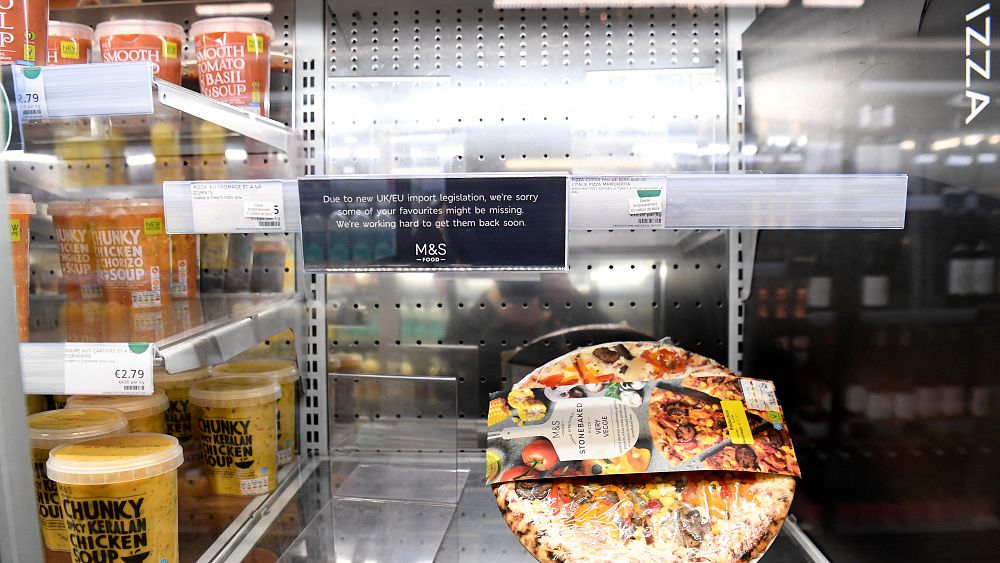
The British retail chain Marks and Spencer has announced it is to close 11 stores in France “in the coming months”, more than half of its 20 sites in the country, due to supply problems related to Brexit.
“The lengthy and complex export procedures now in place following the UK’s exit from the European Union significantly limit the supply of fresh and chilled produce from the UK to Europe and continue to have an impact on the availability of products for our customers” in France, the group said in a statement.
Post-Brexit rules have hit UK exporters to the EU in particular, especially those sending fresh produce, due to new bureaucracy and controls in force since the start of the year. In contrast, the UK has delayed again introducing checks going the other way on imports from the EU into the UK.
M&S added that its partnership with SFH, one of its two partners in France, would cease, resulting in the closure of 11 franchise stores by the end of the year, most of them in Paris.
Its nine stores situated in airports and stations, run with its other partner, Lagardere Travel Retail, will remain open.
“M&S has a long history of serving customers in France and this is not a decision we or our partner SFH have taken lightly,” said the group’s international director Paul Friston, in a statement.
“However, as things stand today, the supply chain complexities in place following the UK’s exit from the European Union, now make it near impossible for us to serve fresh and chilled products to customers to the high standards they expect, resulting in an ongoing impact to the performance of our business.”
In late August M&S chariman Archie Norman, who has complained about post-Brexit trading arrangements, sharply criticised them again in a scathing article in the Mail on Sunday, castigating “a fandango of bureaucracy”.
He cited onerous border checks and paperwork demands for entry into the EU, especially for products with animal ingredients, and said that on average M&S wagons travelled to ports with 700 pages of documentation.
The post-Brexit changes affecting traders result from the UK’s decision to leave the EU’s Single Market and Customs Union, a political choice made in order to become an independent trading nation, free from EU rules.
Boris Johnson’s Brexit strategy has prioritised sovereignty over the kind of compromise needed to maintain close trading ties with Europe.
The trade deal struck with the EU at the end of 2020, just before the expiry of the standstill Brexit transition period, avoided tariffs or quotas, but the departure from the EU’s economic structures inevitably brought new costs and red tape.
There have been complaints that the EU, and particularly France, have been over zealous in applying the new rules.
However, the UK secured little in the Brexit trade deal on streamlining border processes. Its decision to leave the Single Market and Customs Union dates from January 2017, former Prime Minister Theresa May’s government deciding that membership would be incompatible with the wishes of voters expressed the previous summer in the EU referendum.
In July 2020 there were warnings from both the European Commission and the EU’s then Brexit negotiator Michel Barnier that the UK’s exit on such terms would inevitably bring extra costs and bureaucracy to trade with the continent.










